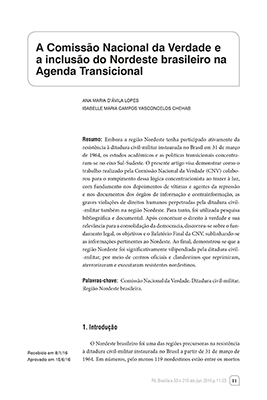Ausência de prazos prescricionais na atuação do Tribunal de Contas da União e seus reflexos sobre a segurança jurídica
Carlos Maurício Lociks de Araújo
Resumo
Este artigo analisa aspectos relacionados à ausência de normas de prescrição na atuação do Tribunal de Contas da União (TCU), lacuna que permite que o órgão restrinja direitos ou imponha sanções ao jurisdicionados. Sob a premissa de a prescrição ser amplamente aplicada no Direito Administrativo, identificam-se formas alternativas para superar essa lacuna, partindo-se de convergências doutrinárias e da própria jurisprudência do Tribunal. Entre as soluções, destacam-se: o arquivamento de processos para reparação de danos ao erário causados por fatos ocorridos há dez anos ou mais; e o uso da analogia com normas de Direito Administrativo para aplicar o prazo prescricional mais comum. Tais premissas apontam para o uso da analogia para justificar a prescrição em processos de atos sujeitos a registro. Verifica-se que a jurisprudência do TCU revela certa resistência em aplicar a segurança jurídica, o que sugere a necessidade da criação de normas próprias de prescrição para o TCU.
Palavras-chave
Prescrição. Segurança jurídica. Tribunal de Contas da União. TCU. Direito Administrativo.
Título, resumo e palavras-chave em inglês
ABSENCE OF PRESCRIPTION PERIODS IN THE ACTION OF BRAZIL’S FEDERAL COURT OF ACCOUNTS AND ITS REFLECTIONS ON THE LEGAL CERTAINTY
ABSTRACT: This article examines aspects related to the absence of rules of prescription on the Tribunal de Contas da União (TCU) and its relationship with the legal certainty for those under its jurisdiction. This gap allows, in principle, that the control body to restrict rights or imposes sanctions after many years of motivating the irregularity control action. Under the premise that the prescription is widely applied in the Brazilian administrative law as a way to protect the legal certainty of the administered, it was identified alternative ways to overcome this gap, assuming of doctrinal convergence and the case-law of the TCU. Among the solutions identified are: archiving processes to repair damage to the Exchequer (imprescriptible, according to the case-law of the Brazilian’s Supreme Court) caused by events that occurred ten years ago or more, on the grounds that the elapsed time generates irreversible injury to full defense; 2) using the analogy with statute of limitations of administrative law to apply the most common prescription period – five years – to the punitive power of TCU. The same assumptions point to the use of analogy to justify the limitation period in cases of “acts subject to registration” (retirement, pension and the like). It turns out, however, that the case-law of the TCU reveals a bias of resistance in applying the legal certainty at the expense of the full exercise of their powers, which suggests, as an alternative more effective, the need for the creation of specific statute of limitations for the TCU.
KEYWORDS: PRESCRIPTION. STATUTE OF LIMITATIONS. LEGAL CERTAINTY. FEDERAL COURT OF ACCOUNTS. TCU. ADMINISTRATIVE LAW.
Como citar este artigo
(ABNT)
ARAÚJO, Carlos Maurício Lociks de. Ausência de prazos prescricionais na atuação do Tribunal de Contas da União e seus reflexos sobre a segurança jurídica. Revista de informação legislativa: RIL, v. 52, n. 208, p. 277-301, out./dez. 2015. Disponível em: <https://www12.senado.leg.br/ril/edicoes/52/208/ril_v52_n208_p277>.
(APA)
Araújo, C. M. L. de (2015). Ausência de prazos prescricionais na atuação do Tribunal de Contas da União e seus reflexos sobre a segurança jurídica. Revista de informação legislativa: RIL, 52(208), 277-301. Recuperado de https://www12.senado.leg.br/ril/edicoes/52/208/ril_v52_n208_p277
